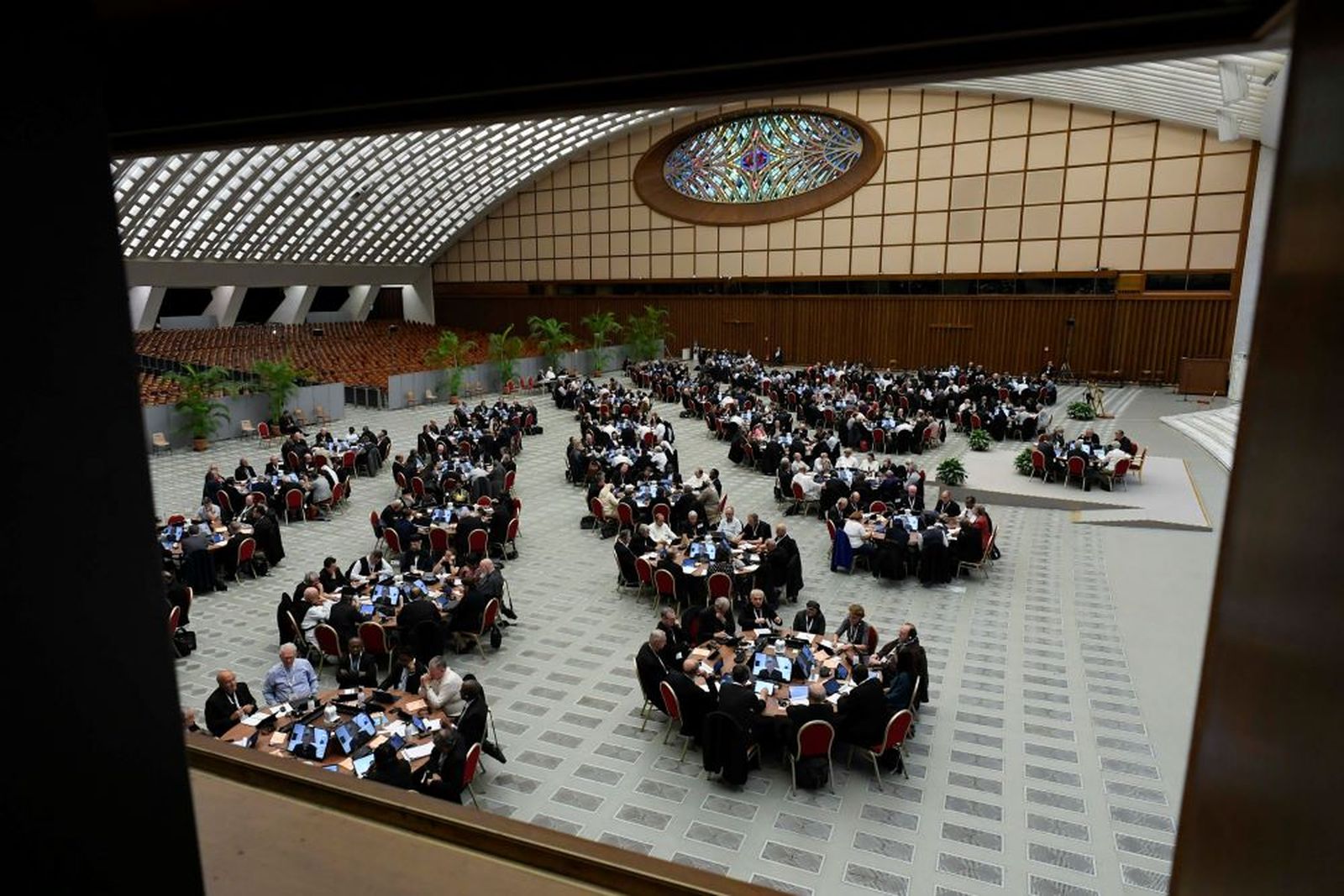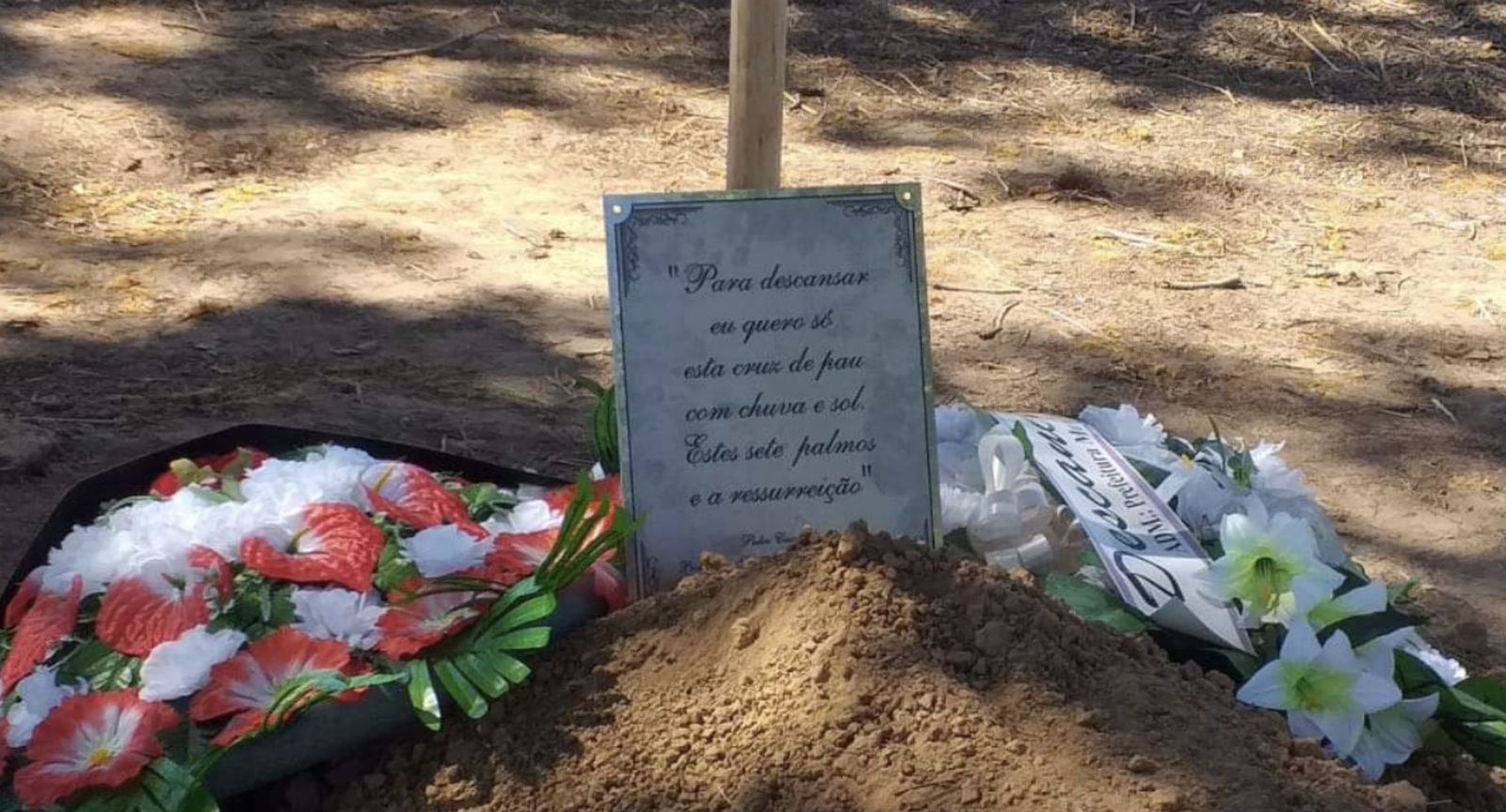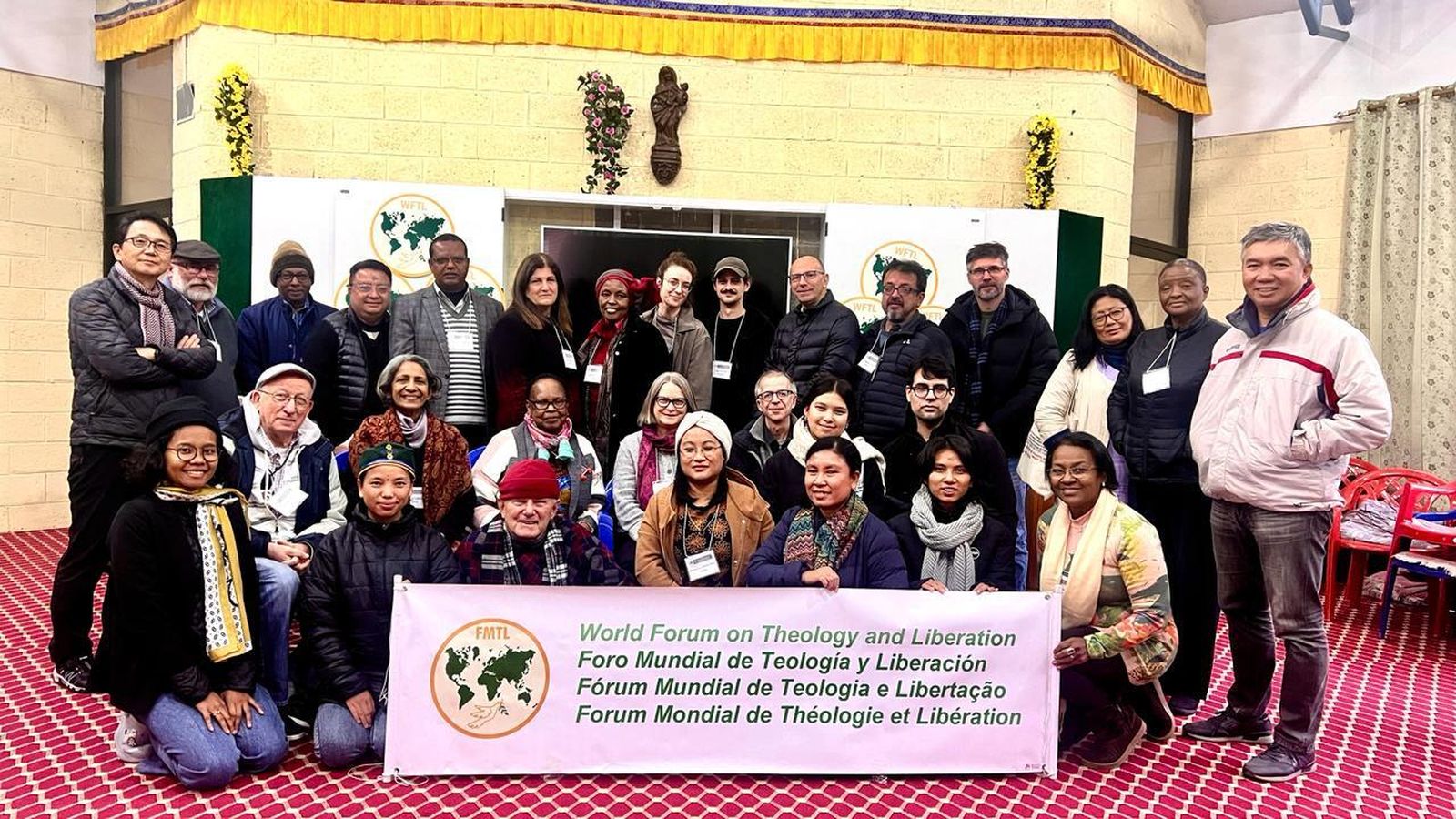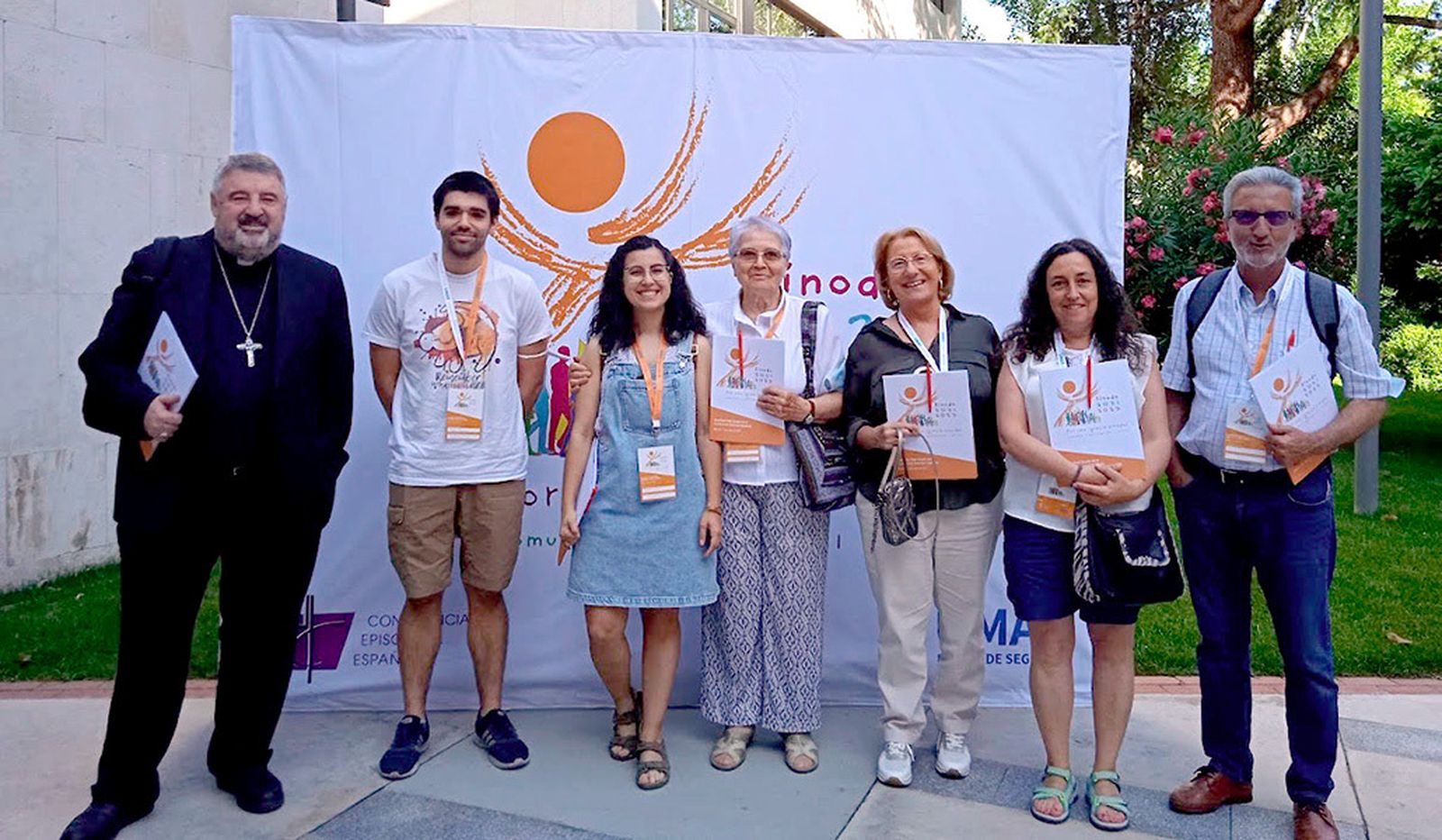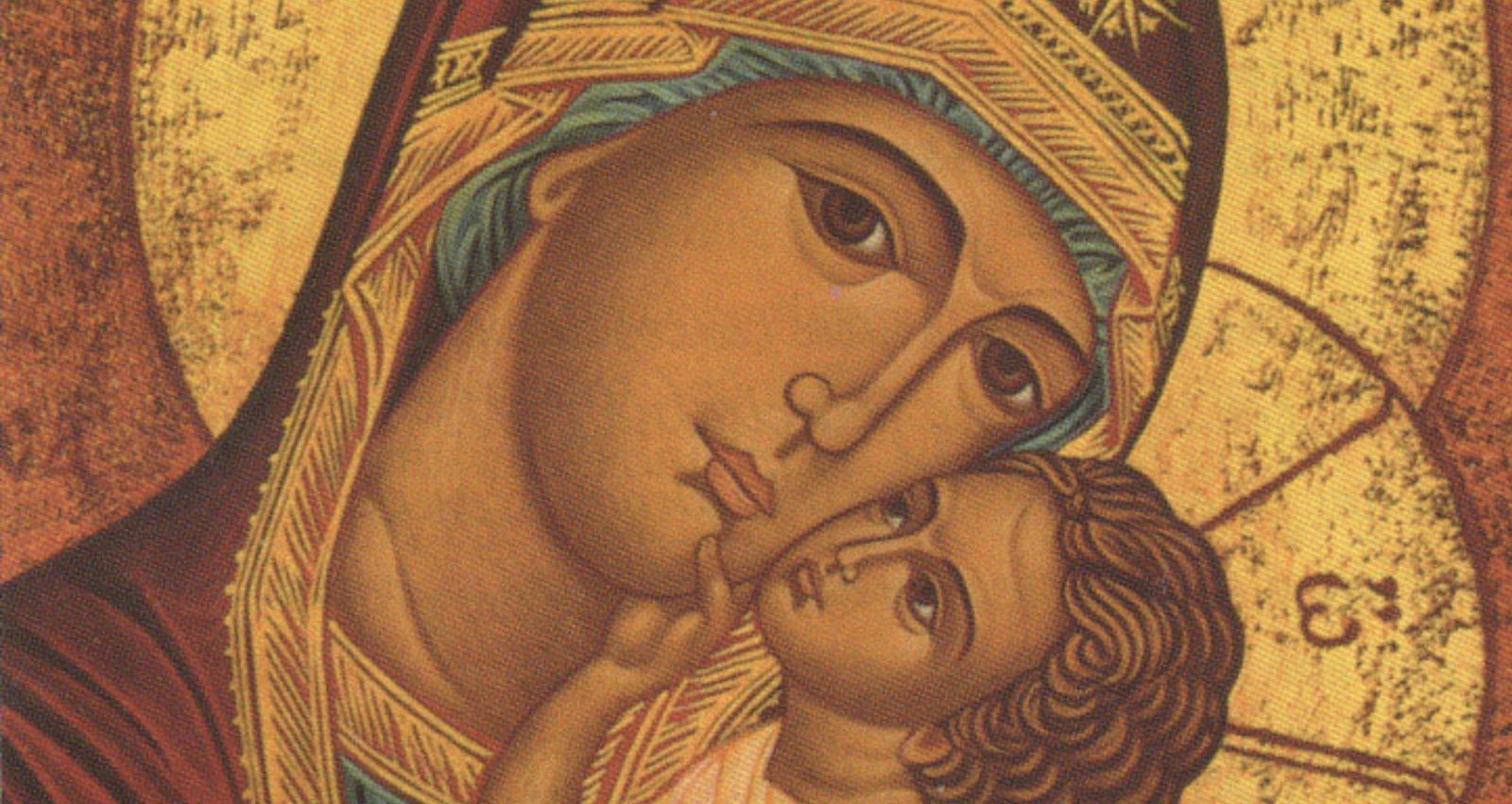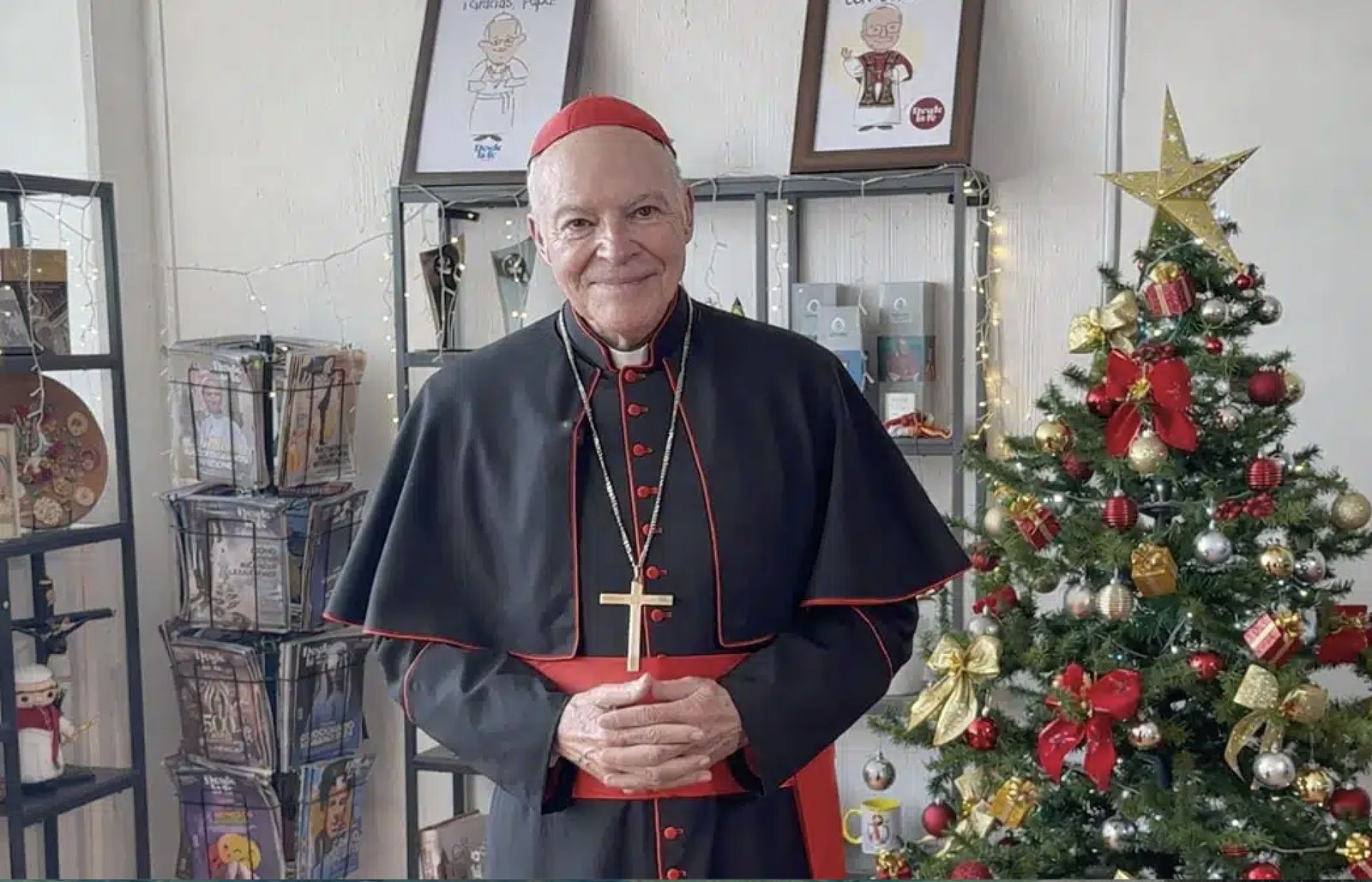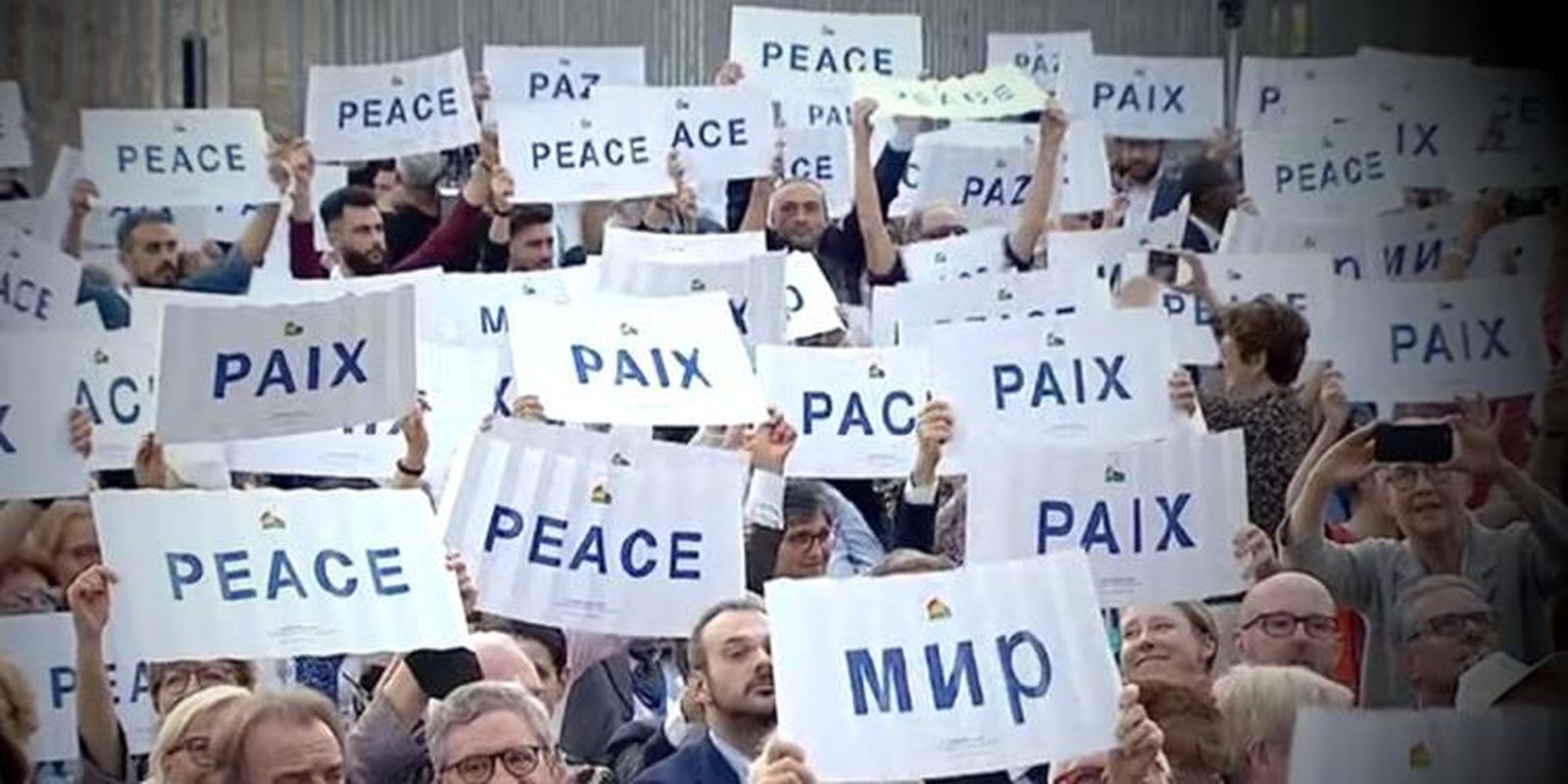Pío XII: final de la Iglesia de Trento [es + En]
Hace 65 años: clímax y final de una época eclesiástica
Pío XII († 10 octubre 1958, hace 65 años) representa el clímax y a la vez el final de toda una época de la historia de la Iglesia Católica, que se remonta cuatro siglos atrás, hasta Trento
La falsa seguridad en sí misma que le daban estos sus axiomas profundos la llevó a actitudes que hoy nos avergüenzan; la llevaron a oponerse sistemáticamente al avance de la ciencia y de la cultura
Tengo para mí, que la nuestra, la de los actuales «mayores», es la generación cristiana que más transformaciones y cambios de paradigma ha presenciado, generado, trabajado o soportado
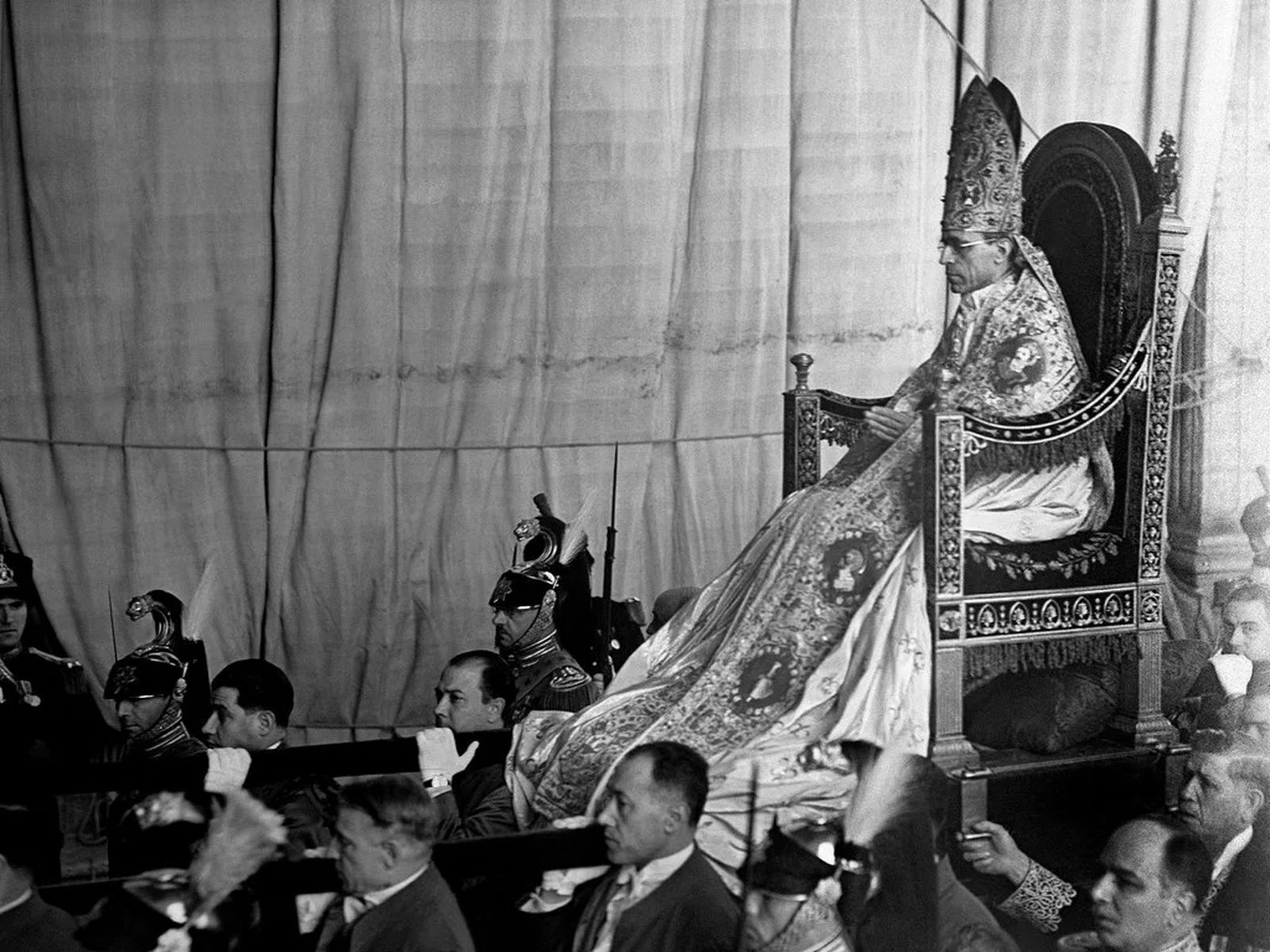
El 10 de octubre de hace 65 años falleció Pío XII. Eugenio Pacelli, nacido en la misma ciudad de Roma, de una familia acomodada, que pronto fue monaguillo en la conocida Iglesia del Oratorio de San Felipe (en plena Vía del Corso), entró muy pronto en el seminario, y sus primeros trabajos ya fueron en las labores secretariales de la Curia Vaticana.
65 años: no es tanto tiempo el que ha pasado. Todavía estamos en vida la generación que lo conocimos como el gran personaje eclesiástico de los tiempos de nuestra infancia, y de la memoria asombrada de de nuestros mayores inmediatos.
Pío XII representa el clímax y a la vez el final de toda una época de la historia de la Iglesia Católica, historia que se remonta cuatro siglos más atrás, hasta Trento. Este Concilio (1545-1563) se celebró precisamente «a la ofensiva», para poner en marcha la Contra-reforma. Quería cerrar toda posibilidad de apertura a los valores ya premodernos, de Lutero, y justo a continuación, a los valores de la Modernidad. En Trento, la Iglesia optó por cerrarse a sí misma, recluirse en su propio castillo medieval, y resistir contra viento y marea contra los desvíos del mundo que abandonó la Edad Media.

La Iglesia esperó inútilmente ver pasar por delante de su puerta el cadáver de de sus enemigos: el inicial espíritu moderno de la Reforma Protestante, pasó por delante de ella, sí, rasgando de arriba abajo la faz de la Iglesia. Y vio pasar también delante de ella, la mayor transformación de la humanidad, desde los tiempos prehistóricos: la Modernidad, de manos de la «Ilustración» del siglo XVIII. Trento constituyó a la Iglesia en fortaleza pretendidamente inexpugnable, frente a los errores de todo el mundo. Emprendió entonces la Iglesia una desesperada huida hacia adelante, cerrándose a todo lo nuevo, y volviéndose auto-referencialmente hacia sí misma para autodeclararse «sociedad perfecta», e «infalible» en su cabeza.
Negó ciegamente el desarrollo más fecundo del crecimiento profundo de la conciencia humana histórica: los derechos humanos. Uno a uno los fue rechazando y anatematizando como «errores pestilentísimos». Reunió en su Syllabus el catálogo de los errores modernos, que, a la altura de hoy resultan increíbles e inexplicables.
Por supuesto, en la base de esta auto-referencialidad hacia sí misma estaba la concepción teológica de que «extra Ecclesiam nulla salus», fuera de la Iglesia no hay salvación. Sólo ella, no la humanidad, no la sociedad, ni la cultura, ni la ciencia, ni ninguna otra religión o iglesia podían salvar al ser humano. Sólo ella. Somos la salvación del mundo, pensaban; y el error no tiene derechos: sólo tiene derechos la verdad (que sólo la tenemos nosotros). Lo dicho: no sólo increíble, sino casi inexplicable.
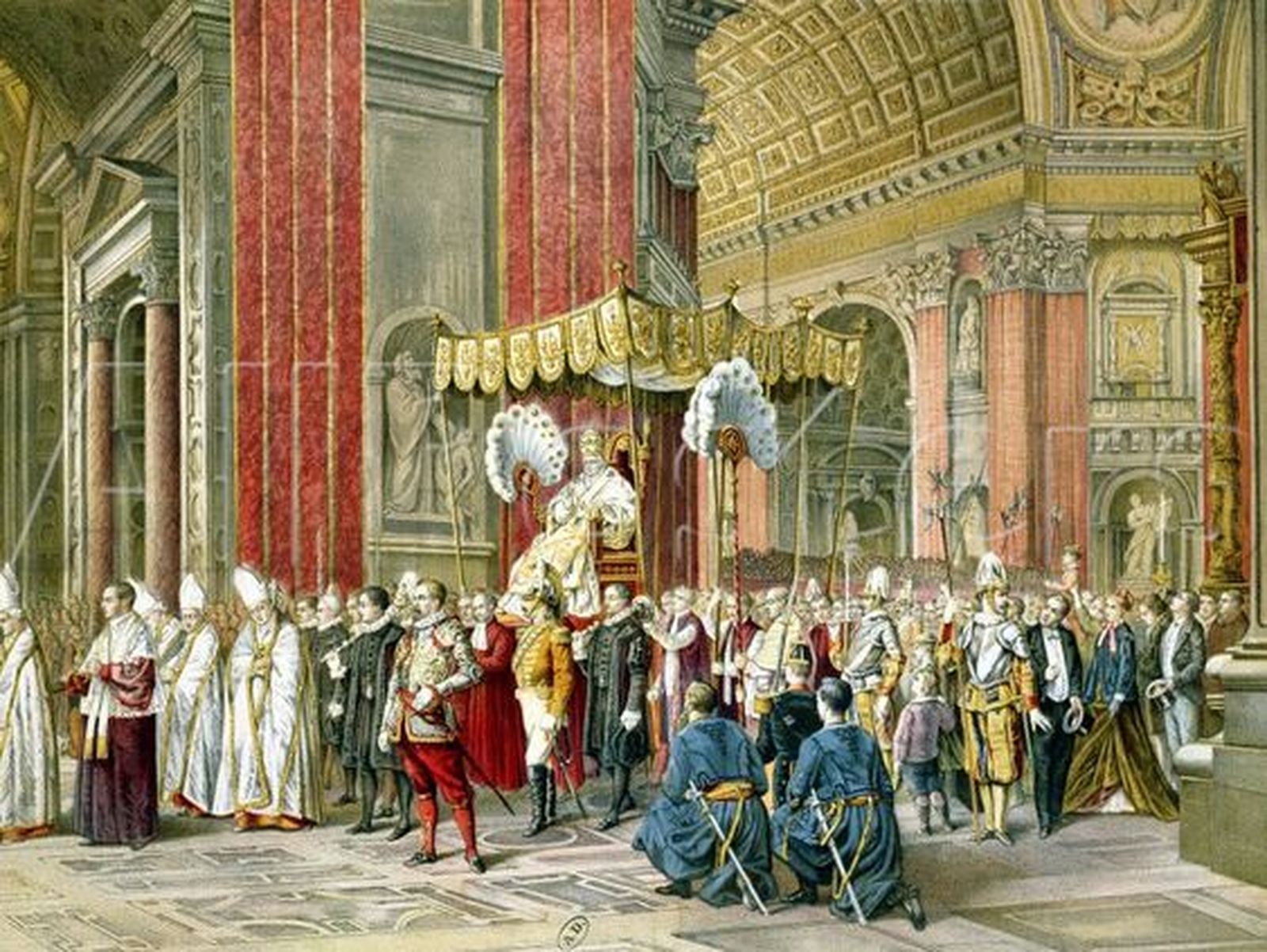
La falsa seguridad en sí misma que le daban estos sus axiomas profundos la llevó a actitudes que hoy nos avergüenzan; la llevaron a oponerse sistemáticamente al avance de la ciencia y de la cultura: se opuso a la libertad de pensamiento, de investigación, de la libertad de conciencia... y a avances como las vacunas... y ¡hasta el alumbrado público! Consecuentemente, los mejores y más abiertos teólogos fueron censurados, inquisitorialmente perseguidos y castigados, sí, incluso hasta en tiempos de Pío XII
Con esa larga y pesadísima tradición sobre sus espaldas, Pío XII, Eugenio Pacelli, nacido en el siglo XIX (1876), y con una impoluta carrera eclesiástico-canónico-diplomática, era totalmente incapaz de intuir siquiera que estaba a las vísperas del final de la Iglesia medieval de la que él era el epígono; al final también -por agotamiento- de la vigencia del Concilio de Trento; al final de la cristiandad y de la Iglesia del Ancien Régime y de las Santas Alianzas, y a las puertas de una Iglesia «nueva» (entiéndase) para un Mundo Nuevo, el Moderno en todo el sentido profundo de la palabra; mundo que había tenido que nacer y crecer -como Jesús- «fuera de la ciudad» (de la agustiniana «ciudad de Dios»). Sólo hacía falta «abrir las ventanas para que entrara el aire fresco»... Su sucesor, el anciano bonachón Angelo Roncalli, se encargaría de tomar la iniciativa. Era su turno.
Recordar este aniversario tan maduro (¡65 años!) es, para nuestra generación, un recuerdo luminoso, que nos hace com-prender, ver-en-conjunto, el curso hondo de la historia, que incesantemente nos empuja hacia la muerte, para que dejemos sitio a otros, que hagan y pongan en marcha lo que nosotros ya no somos capaces de acoger ni de empujar. Decía Mark Plank que en muchos campos, avanzamos «de funeral en funeral»... La muerte es una exigencia de la naturaleza para que dejemos espacio y tiempo al turno de los otros.
Cuántos cambios, cuántas transformaciones hemos visto nacer y crecer en estos 65 años, que entonces eran ideas no sólo impracticables, sino ni siquiera pensables... Y cuántas de estas ideas forman hoy parte del acervo teológico común de los cristianos.
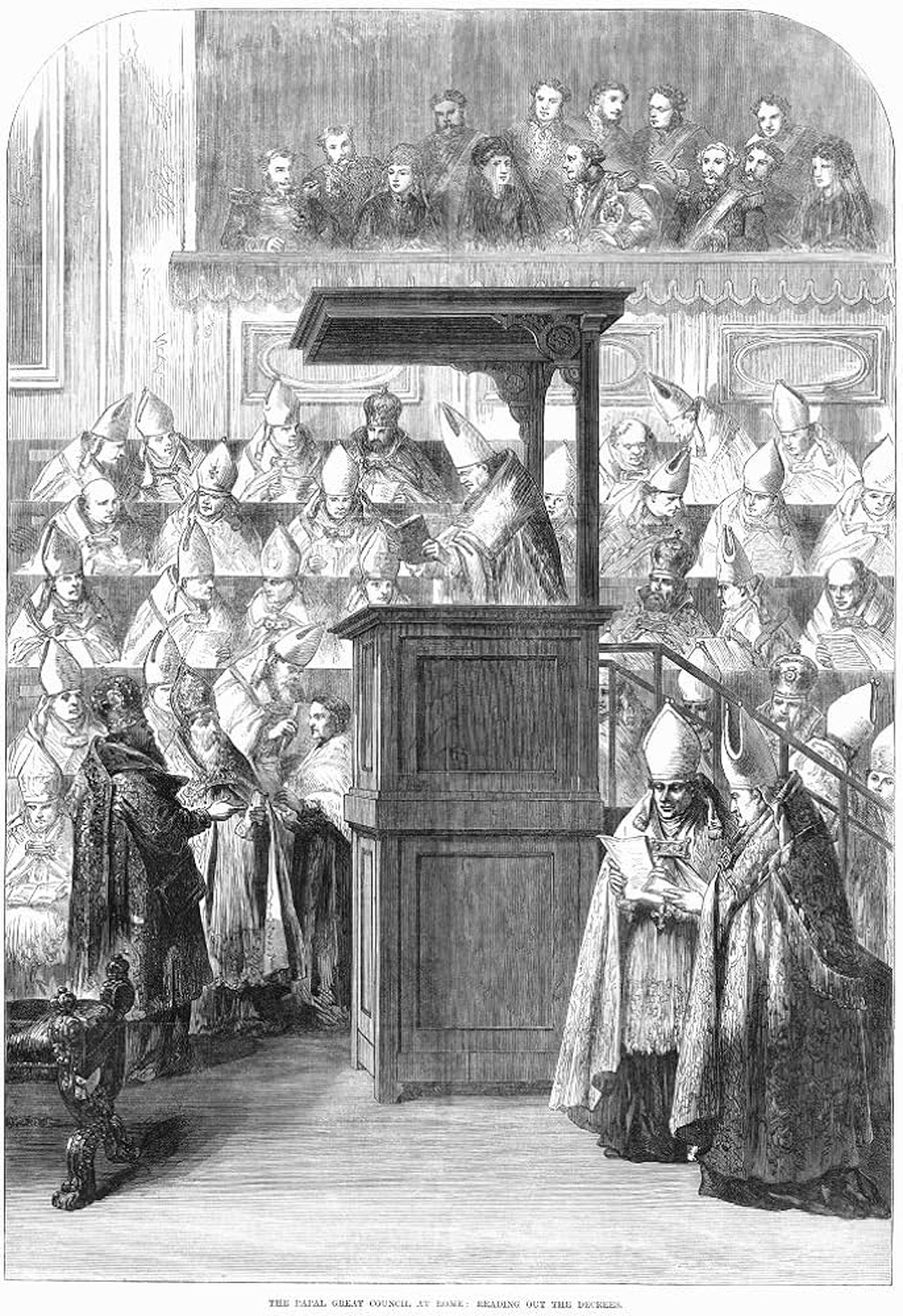
Tengo para mí, que la nuestra, la de los actuales «mayores», es la generación cristiana que más transformaciones y cambios de paradigma ha presenciado, generado, trabajado o soportado. También lo dice González Faus, y no pocos otros, aunque no muchos lo tematizan con detalle, como merece la importancia precisamente de esta historia, que es la que tratamos de continuar hoy. Pero ahí estamos.
Me alegro -he dicho muchas veces- de haber conocido el tiempo y la Iglesia de Pío XII. Conocer el mundo y la Iglesia de Pío XII fue conocer el mundo de «la gran síntesis medieval», la que quiso fijar y perpetuar Trento, bloqueando la capacidad de pensar y la creatividad de la Iglesia para varios siglos. Aquella espiritualidad verdaderamente «pre-moderna», aquella liturgia en latín de cara al retablo, aquellos confesionarios (y su mundo), las indulgencias, las novenas, la bula de la Santa Cruzada, el matrimonio católico impuesto por el Concordato como único matrimonio posible, las predicaciones, las procesiones, la declaración dogmática infalible que Pío XII no quiso quedarse sin experimentar... eran todo un mundo que estaba a punto de venirse abajo, y que, en gran parte, ya se acabó. No ha sido fácil vivir a fondo esta historia y ser testigos militantes. Sobre todo para todos aquellos que la tomaron en serio como cosa propia. Ha supuesto mucha perplejidad, mucha reflexión, mucha paciencia. Y la suerte de haber tenido aguante, porque no han sido pocos los que no aguantaron.
Mirar atrás después de 65 años, es una vivencia crispada, a la vez dolorosa y gozosa, confiada. Como supimos aguantar, a pesar de tener en contra tantas condiciones, sabremos -y sabrán los que vienen- aguantar la crisis ya «en salida» que atravesamos, crisis que ni un Pío XIII o un Pacelli-2 hubiera podido contener. Tiempos que se estaban yendo, que ya se fueron, y que bien idos quedan. A nosotros nos queda, a pesar de todo, una memoria agradecida y esperanzada, cargada de futuro.
Contacto: blog@servicioskoinonia.org
Link to all blog posts at once: tinyurl.com/Vigil-BlogRD
English below
On October 10, 65 years ago, Pius XII died. Eugenio Pacelli, born in the same city of Rome, from a well-to-do family, who was soon an altar boy in the well-known Church of the Oratory of St. Philip (in the middle of the Via del Corso), soon entered the seminary, and his first jobs were already in the secretarial work of the Vatican Curia.
65 years: it is not such a long time that has passed. The generation that knew him as the great ecclesiastical figure of the times of our childhood, and of the astonished memory of our immediate elders, is still alive.
Pius XII represents the climax and at the same time the end of a whole epoch in the history of the Catholic Church, a history that goes back four centuries to Trent. This Council (1545-1563) was held precisely "on the offensive", to launch the Counter-Reformation. It wanted to close any possibility of opening up to the pre-modern values of Luther, and then to the values of Modernity. At Trent, the Church chose to close in on itself, to seclude itself in its own medieval castle, and to resist against all odds against the deviations of the world that had left the Middle Ages.
The Church waited uselessly to see the corpse of her enemies pass before her door: the initial modern spirit of the Protestant Reformation passed before her, yes, tearing the face of the Church from top to bottom. And it also saw before it the greatest transformation of humanity since prehistoric times: Modernity, at the hands of the "Enlightenment" of the 18th century. Trent made the Church a supposedly impregnable fortress in the face of the errors of the whole world. The Church then embarked on a desperate flight forward, closing itself to everything new, and turning itself self-referentially inward to declare itself a "perfect society" and "infallible" in its own mind.
It blindly denied the most fruitful development of the deepest growth of historical human consciousness: human rights. One by one he rejected and anathematized them as "most pestilential errors". He compiled in his Syllabus the catalog of modern errors, which, at this point in time, are incredible and inexplicable.
Of course, at the basis of this self-referentiality to itself was the theological conception that "extra Ecclesiam nulla salus", outside the Church there is no salvation. She alone, not humanity, not society, not culture, not science, not any other religion or church could save the human being. She alone. We are the salvation of the world, they thought; and error has no rights: only truth (which only we have) has rights. That said: not only unbelievable, but almost inexplicable.
The false self-assurance that these deep axioms gave her led her to attitudes that today shame us; they led her to systematically oppose the advancement of science and culture: she opposed freedom of thought, freedom of research, freedom of conscience... and advances such as vaccines... and even public lighting! Consequently, the best and most open theologians were censured, inquisitorially persecuted and punished, yes, even in the time of Pius XII.
With this long and very heavy tradition behind him, Pius XII, Eugenio Pacelli, born in the 19th century (1876), and with an unblemished ecclesiastical-canonical-diplomatic career, was totally incapable of even intuiting that he was on the eve of the end of the medieval Church of which he was the epigone; at the end also - by exhaustion - of the validity of the Council of Trent; at the end of Christianity and of the Church of the Ancien Régime and of the Holy Covenants, and at the doors of a "new" Church for a New World, the Modern World in the deepest sense of the word; a world that had to be born and grow - like Jesus - "outside the city" (of the Augustinian "city of God"). It was only necessary to "open the windows to let fresh air in".... His successor, the elderly and good-natured Angelo Roncalli, would take the initiative. It was his turn.
Remembering this very mature anniversary (65 years!) is, for our generation, a luminous memory, which makes us com-prehend, see-together, the deep course of history, which incessantly pushes us towards death, so that we make room for others, who do and set in motion what we are no longer able to welcome or push. Mark Plank used to say that in many fields, we advance "from funeral to funeral".... Death is nature's demand that we leave space and time for others to take their turn.
How many changes, how many transformations we have seen born and grow in these 65 years, which then were not only impracticable ideas, but not even thinkable? And how many of these ideas are today part of the common theological heritage of Christians.
I believe that ours, that of the current "elders", is the Christian generation that has witnessed, generated, worked or endured the most transformations and paradigm shifts. Gonzalez Faus also says so, and not a few others, although not many of them have dealt with it in detail, as the importance of precisely this history deserves, which is the one we are trying to continue today. But here we are.
I am glad -I have said many times- to have known the time and the Church of Pius XII. To know the world and the Church of Pius XII was to know the world of "the great medieval synthesis," the one that Trent wanted to fix and perpetuate, blocking the Church's capacity for thought and creativity for several centuries. That truly "pre-modern" spirituality, that liturgy in Latin facing the altarpiece, those confessionals (and their world), the indulgences, the novenas, the Bull of the Holy Crusade, the Catholic marriage imposed by the Concordat as the only possible marriage, the preaching, the processions, the infallible dogmatic declaration that Pius XII did not want to remain without experimenting... were a whole world that was about to collapse, and that, to a great extent, is already over. It has not been easy to live this history in depth and to be militant witnesses. Especially for all those who took it seriously as their own. It has involved a lot of perplexity, a lot of reflection, a lot of patience. And the good fortune of having had endurance, because there have been more than a few who have not endured.
Looking back after 65 years, it is a tense experience, at the same time painful and joyful, confident. As we were able to endure, in spite of having so many conditions against us, we will know - and those who will come will know - how to endure the crisis we are going through, a crisis that not even a Pius XIII or a Pacelli-2 would have been able to contain. Times that were going away, that are already gone, and that are well and truly gone. We are left, in spite of everything, with a grateful and hopeful memory, full of future.
Contact: blog@servicioskoinonia.org
Link to all blog posts at once: tinyurl.com/Vigil-BlogRD
